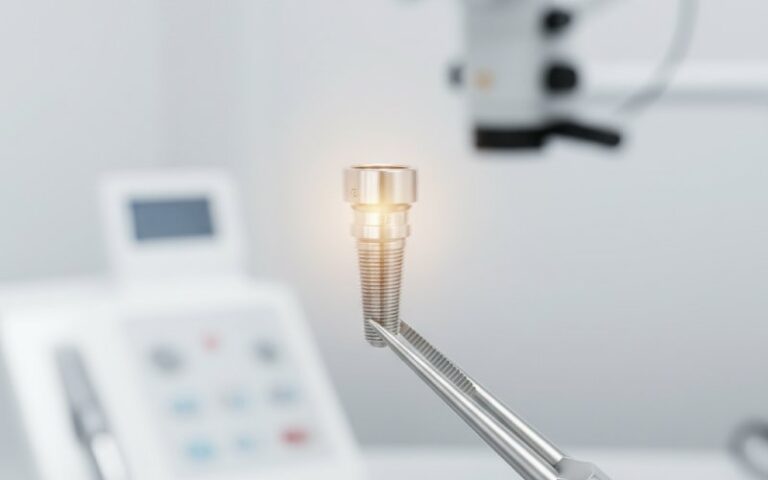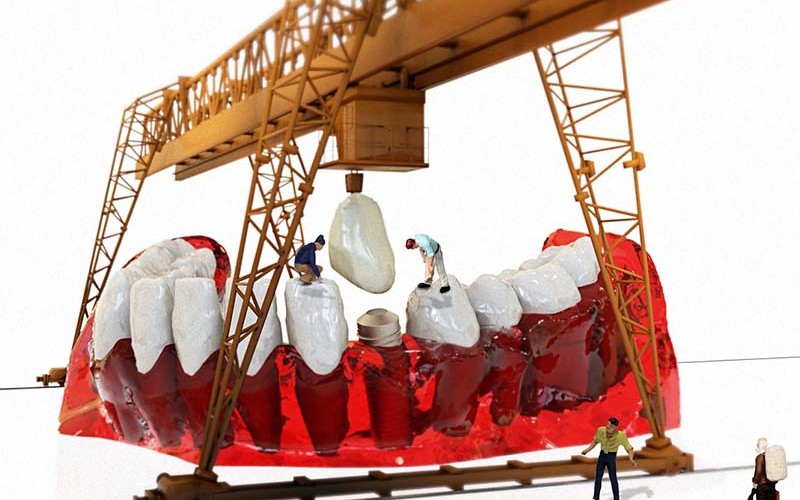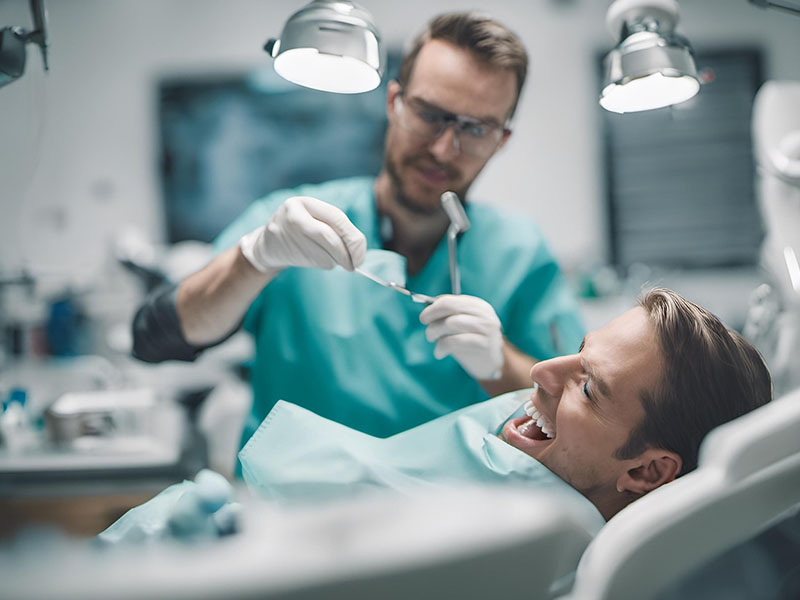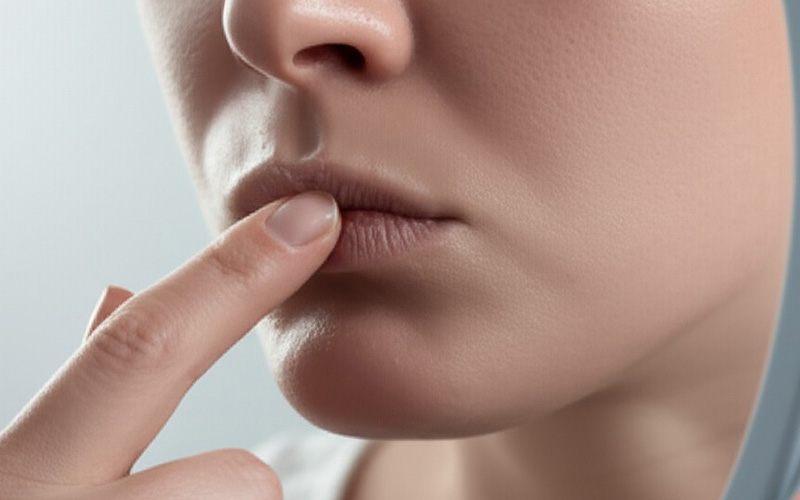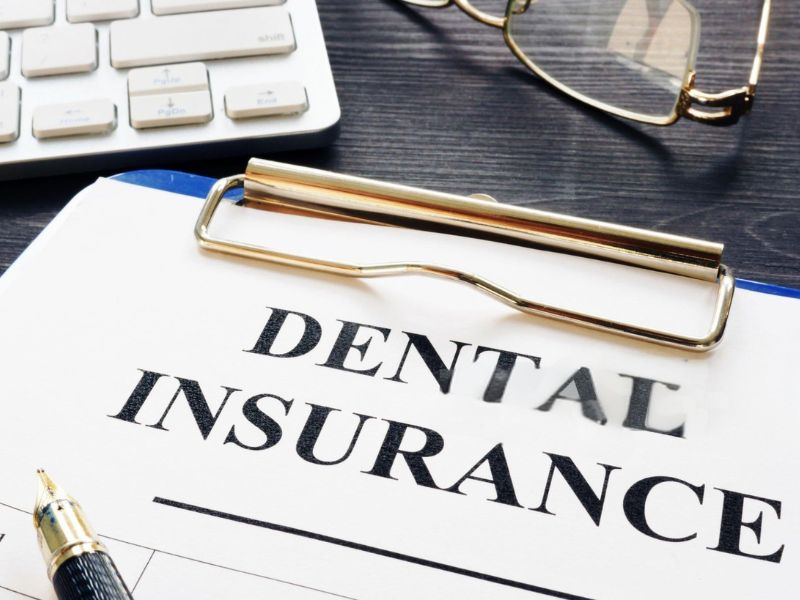
Guide to Preventing Oral Cancer: Simple Steps for Mouth Cancer Prevention
In this article, we will talk about something very important: preventing oral cancer. This is a type of cancer that can affect your mouth and throat. The good news is that you have a lot of power to lower your risk. This article will share simple, clear steps you can take. We will look at the main risk factors and what you can do about them. These are not hard or costly changes. They are choices you can make to protect your health. Let’s get started on learning how to prevent oral cancer.
Inhaltsübersicht
What Is Oral Cancer, and Why Should I Care?
Let’s start with the basics. What is oral cancer? It is a cancer that grows in your oral cavity. Your oral cavity includes your lip, your tongue, your gums, and the inside of your cheeks. Sometimes this is also called mouth cancer. There is another type of cancer called oropharyngeal cancer. This cancer affects the back of your throat, including the base of your tongue and your tonsil. Together, these are often called head and neck cancer.
You should care because this type of cancer can be very serious. But many people don’t know the risks. The American Cancer Society works hard to teach people about this cancer. Learning about the causes of this cancer is the first step. When you know what causes a problem, you can take action. Many cases of this cancer are linked to things we can change. This is a cancer we can fight with knowledge and better habits. The fight against cancer starts with you.
Making smart choices is key to prevention. This means understanding what raises your risk for this kind of cancer. We are going to talk about tobacco, alcohol, and even the sun. Each one can increase your chance of getting this cancer. But you can lower that risk. It’s about taking small steps that add up to big protection. This is a battle against cancer that you can help win for your own body. We need to talk more about this dangerous cancer.
How Does Tobacco Use Increase My Cancer Risk?
Tobacco is the single biggest risk factor for oral cancer. So, how does tobacco use increase your cancer risk? When you smoke cigarettes, a cigar, or a pipe, you bring dangerous chemicals into your mouth and throat. These chemicals damage the cells in your oral cavity. Over time, this damage can cause the cells to grow out of control. That is what cancer is. This is a major cause of cancer.
It doesn’t matter what kind of tobacco you smoke. All forms of tobacco are harmful and increase your risk. Using tobacco is a direct path to a higher risk of cancer. The longer you smoke or using any tobacco products, the higher your risk becomes. This isn’t just a small risk; it’s a very big one. The Cancer Society states that smokers are many times more likely to get oral cancer than non-smokers. If you want to prevent this cancer, the best thing you can do is to quit smoking.
If you smoke, you are putting yourself at a very high risk for a terrible cancer. There is help available to quit. You can talk to your primary care doctor or a cancer center. They can give you tools and support. To prevent oral cancer, you must avoid tobacco. It is the most powerful choice you can make. The link between smoking and smokeless tobacco and this type of cancer is too strong to ignore. Quitting is the best way to reduce your risk of this cancer.
Should I Be Worried About Smokeless Tobacco, Like Chew or Betel Quid?
Yes, you should be very worried. Some people think that smokeless tobacco is a safe choice. It is not. Using smokeless tobacco, like chewing tobacco or snuff, puts you at great risk for oral cancer. These tobacco products are not burned, but they are still full of chemicals that cause cancer. When you chew or hold tobacco in your mouth, those chemicals sit right against your gums and cheeks for a long time. This is a direct cause of mouth cancer.
This isn’t just a problem in some parts of the world. It’s a global issue. In some parts of Asia, people chew something called betel quid or gutka. This is a mix of the areca nut and other things, often with tobacco. It is very popular in south Asia. Studies show that betel quid and gutka greatly increase the risk of oral cancer. The nut itself can cause cancer, and when you add tobacco, the risk is even higher. This kind of smokeless habit is very dangerous.
The bottom line is that there is no safe form of tobacco. Whether you smoke it or chew it, tobacco causes cancer. Smokeless tobacco can lead to white patches in your mouth, called leukoplakia, which can turn into cancer. This type of cancer can be aggressive. If you use any smokeless products, the best thing you can do for your health is to quit. Get help from a doctor or a program that helps people stop using tobacco. It is a critical step to prevent a deadly cancer.
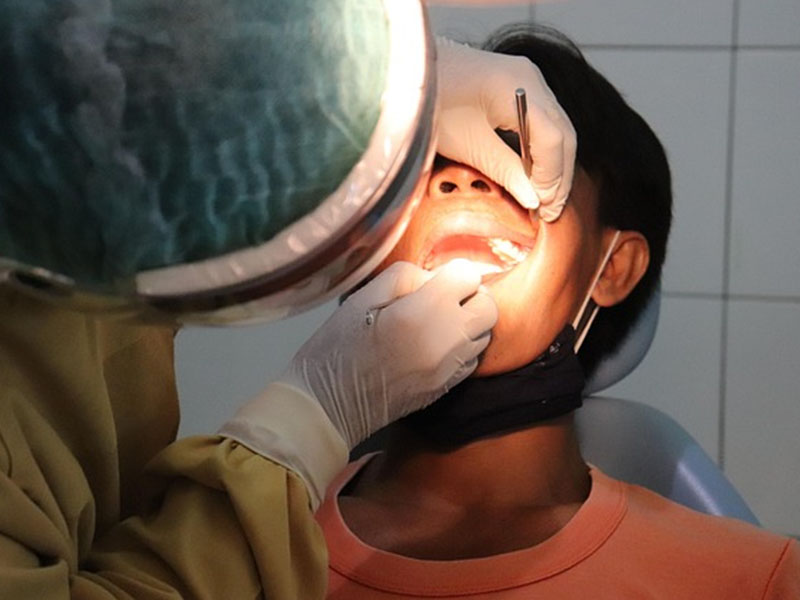
Can Limiting Alcohol Really Help Prevent Oral Cancer?
Absolutely. After tobacco, alcohol use is another major risk factor for oral cancer. You might be surprised to learn how much alcohol can increase your risk of this cancer. When you drink alcohol, it can irritate the cells inside your mouth and throat. Over time, this irritation can cause changes in the cells that lead to cancer. This makes alcohol a direct contributor to the risk of cancer.
The more alcohol you drink, the higher your risk becomes. Heavy drinking is especially dangerous. What is heavy drinking? For men, it’s often defined as more than two drinks per day. For women, it’s more than one drink per day. If you choose to drink, do so in moderation. This is a key piece of advice to prevent cancer. Limiting alcohol is a simple and effective part of preventing oral cancer.
The connection is clear. Alcohol increases the risk of cancers of the oral cavity and throat. Your body changes alcohol into a chemical that can damage your DNA. This damage can lead to cancer. So, if you are looking for ways to reduce your risk, take a look at your alcohol habits. Cutting back is a smart and healthy choice. It’s one of the best lifestyle choices you can make to lower your risk of this serious cancer.
What Happens When You Use Tobacco and Alcohol Together?
Using tobacco is bad. Drinking a lot of alcohol is bad. But using them together is much, much worse. The risk is not just added together; it is multiplied. When you use tobacco and alcohol together, you greatly increase your risk of getting oral cancer. It’s a dangerous combination that creates a very high risk for cancer.
Here’s why. Scientists believe that alcohol acts like a solvent. This means it helps the harmful chemicals from tobacco get inside the cells of your mouth and throat more easily. So, the alcohol helps the tobacco do even more damage. This one-two punch is devastating to your oral health. It is one of the biggest cancer risk factors for mouth cancer.
Many people who develop oral cancer are heavy drinkers who also smoke. This is not a coincidence. If you do both, your risk for this cancer can be many times higher than for people who do neither. If you want to prevent this kind of cancer, you should avoid this combination at all costs. The best choice is to not smoke at all and to limit alcohol consumption. This is a powerful step to reduce your risk of a very dangerous cancer.
What is HPV and How is it Linked to Oropharyngeal Cancer?
Now, let’s talk about something you might not connect with mouth cancer: a virus. HPV, or the human papillomavirus, is a very common virus. Most people know HPV is linked to other types of cancer, but many don’t know it can also cause cancer in the throat. Specifically, HPV is a leading cause of oropharyngeal cancer. This is a cancer that forms in the back of the throat, at the base of the tongue, and in the tonsils.
How does this happen? HPV is spread through close, personal contact. It can be passed sexually through skin-to-skin contact. An HPV infection in the throat can cause cells to change. Over many years, this infection can turn the cells cancerous. We are seeing an increase in this type of cancer, especially in younger people who do not smoke. This shows that HPV is a serious risk factor for this kind of cancer.
The link between HPV and oropharyngeal cancer is strong. Your doctor, or MD, can tell you more about this. While not every HPV infection leads to cancer, some high-risk types of HPV are the main cause of this cancer. Understanding this connection is important because it gives us another way to prevent a serious cancer. We need to talk about HPV when we talk about oral health.
How Can I Get Vaccinated to Prevent HPV-Related Cancers?
This is where we have some really good news. There is a vaccine that can protect you from HPV. The best way to prevent HPV is to get vaccinated. The HPV vaccine helps your body fight the infection before it can cause problems like cancer. Doctors recommend the vaccine for boys and girls, usually around ages 11 or 12. This is before they are likely to become sexually active.
The vaccine is very effective at preventing the types of HPV infection that cause most oropharyngeal cancer and other cancers. If you are a young adult and did not get the vaccine as a child, you can still get it. Talk to your primary care doctor or MD. They can tell you if the HPV vaccine is right for you. This is a safe and proven way to prevent a major cause of this cancer.
This is a huge step forward in cancer prevention. We have a tool that can stop a cancer before it ever starts. To get vaccinated is a simple action that can protect your future health. It helps protect you from a serious oropharyngeal cancer. Don’t miss this opportunity to reduce your risk. It is one of the most important things you can do to prevent this type of cancer.
Can Sun Exposure Cause Lip Cancer?
Yes, it can. We often think about putting on sunscreen to protect our skin from cancer. But many of us forget about our lip. Your lip is also skin, and it is very sensitive to the sun’s rays. Too much sun exposure over a long time is a main risk factor for lip cancer. This type of cancer often appears on the lower lip because it gets more sun.
The risk is real. The sun gives off UV rays that can damage the DNA in your lip cells. This damage can lead to cancer. People who work outdoors for many hours, like farmers or construction workers, have an increased risk for lip cancer. But anyone who spends a lot of time in the sun without protection has a risk for lip cancer. This is a preventable cancer.
How do you protect yourself? It’s simple. Use a lip balm that has an SPF of 30 or higher. Re-apply it often, just like you would with sunscreen. You can also wear a wide-brimmed hat to shade your face and lip. Taking these small steps can greatly lower your risk for lip cancer. This is an easy way to help prevent a common but serious form of oral cancer. Don’t forget your lip when you protect yourself from the sun.
Why Is Visiting My Dentist So Important for Cancer Prevention?
Your regular dental visits are not just for cleaning your teeth. They are a key part of your health care. Your dentist is trained to spot the early signs of oral cancer. They are often the first to diagnose it. This is because they look closely at your entire oral cavity during a checkup. A routine dental exam can save your life.
During an exam, your dentist looks for any changes in your mouth. This includes red or white patches, a sore or ulcer that won’t heal, or any unusual lumps. These can be early signs of a cancerous growth. When cancers are found early, they are much easier to treat. This is why you should see your dentist every six months. An early diagnose can make all the difference in fighting this cancer.
Your dentist is your partner in health. If they see something that looks suspicious, they will recommend you see a specialist or MD. They can help you catch a problem before it becomes a big cancer. Do not skip your checkups. It is one of the most important things you can do for your oral cavity and oropharyngeal health. An exam can help diagnose this cancer and give you the best chance for a good outcome.
What Simple Lifestyle Choices Can I Make Today to Reduce My Risk?
We’ve talked about the big risks like tobacco and alcohol. Now, let’s talk about other simple lifestyle choices you can make. A healthy diet is important. Eating plenty of fruits and vegetables may help lower your risk of oral cancer. These foods are full of vitamins that help protect your body’s cells from damage that can lead to cancer. This is an easy and tasty way to improve your health.
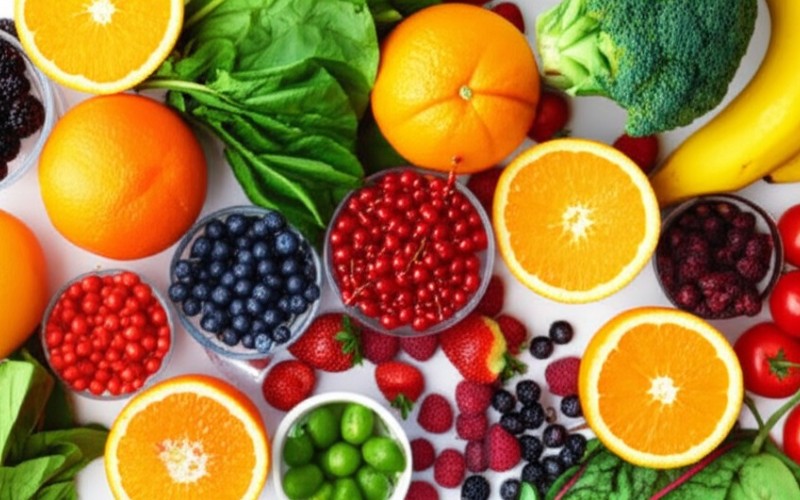
Good oral hygiene is also key. This means you should brush your teeth twice a day and floss every day. A clean mouth is a healthy mouth. While this won’t directly prevent cancer, it helps keep your gums and tissues healthy. It also means you are more likely to notice if something in your mouth changes, like an ulcer or a sore.
Finally, pay attention to your body. Do a self-check once a month. Look inside your mouth with a good light and a mirror. Check your lip, gums, tongue, and the inside of your cheeks. Look for any sores, lumps, or patches that don’t go away after two weeks. If you find anything, see your dentist or doctor. Being aware of your own body is a powerful tool in the fight against cancer. These small habits can help prevent a big problem.




